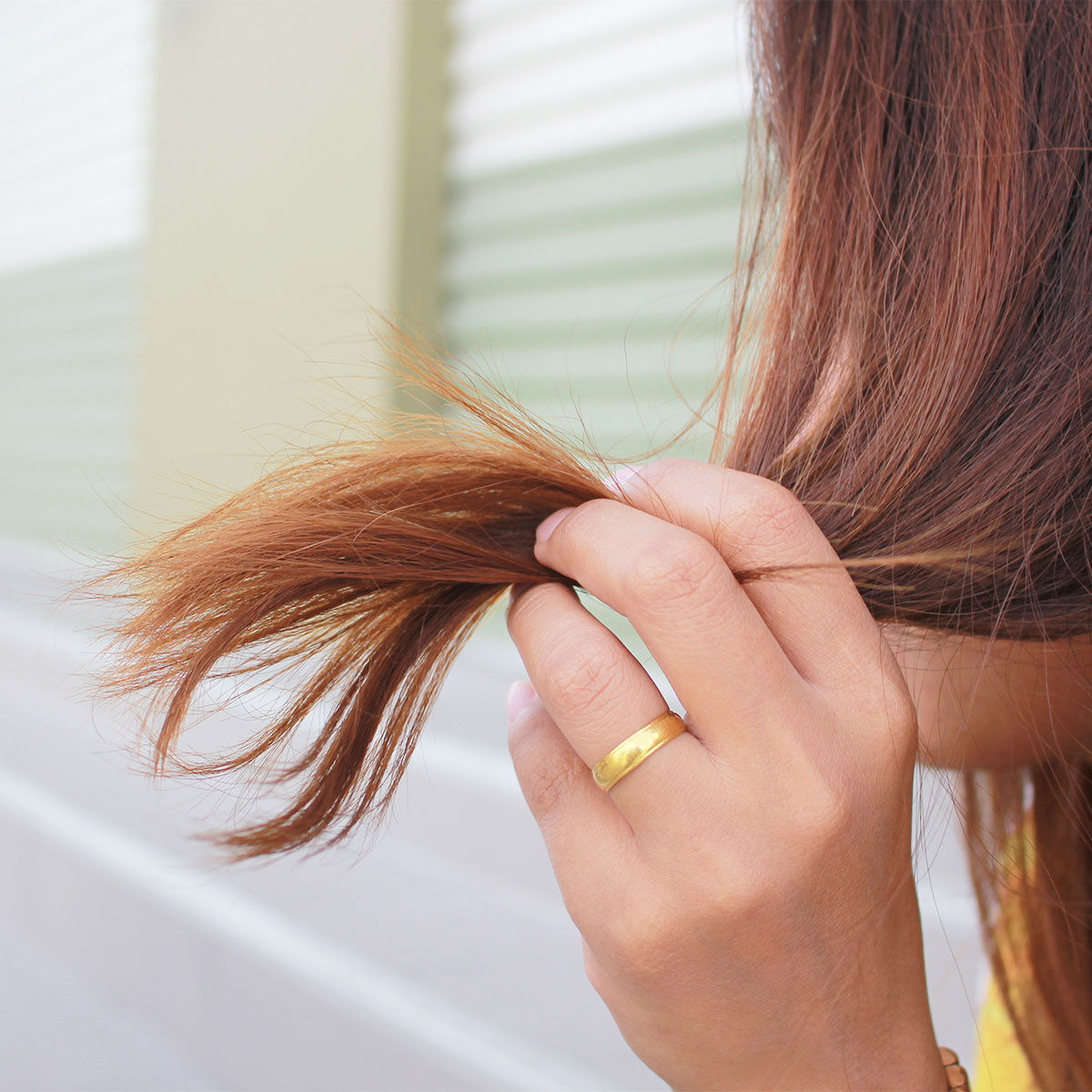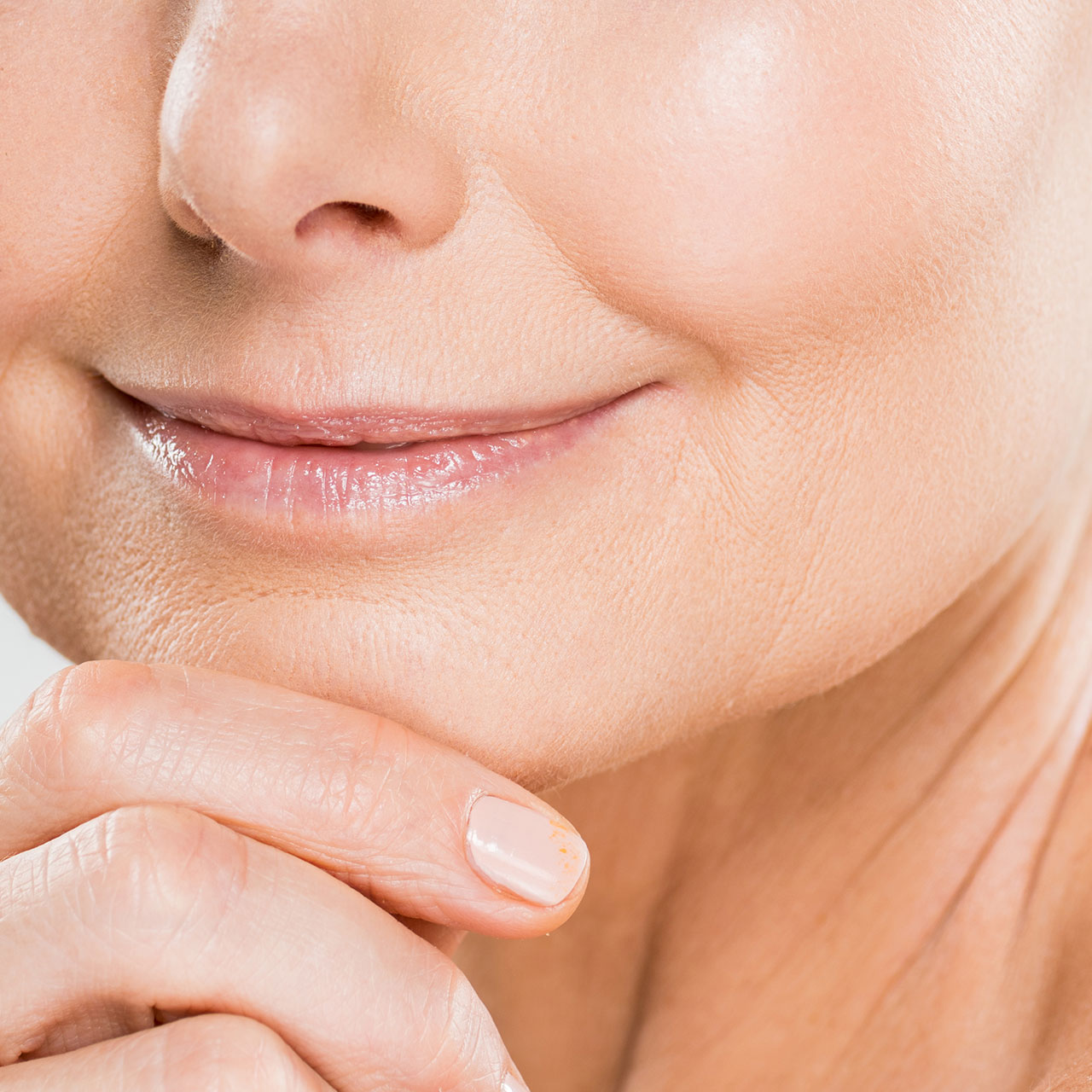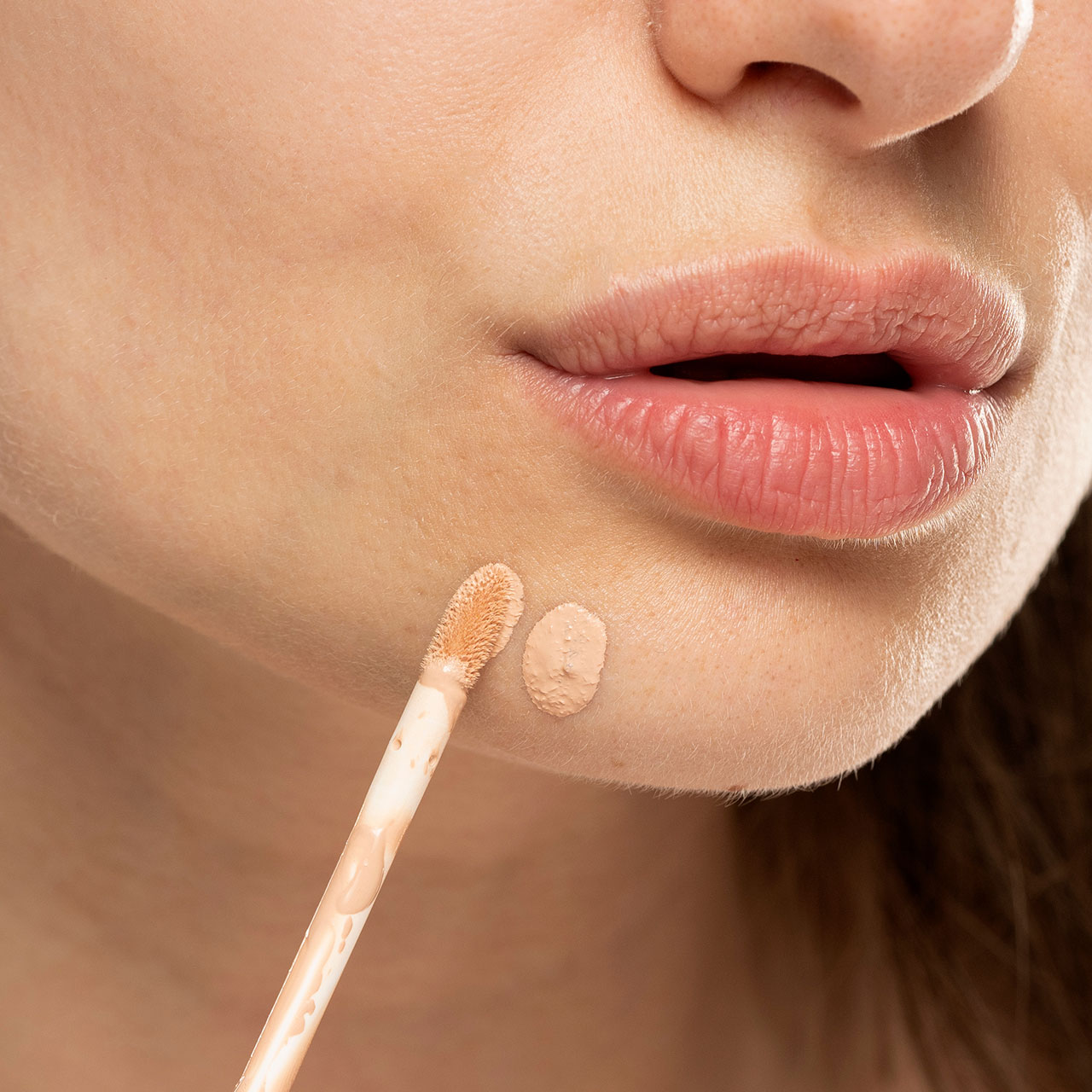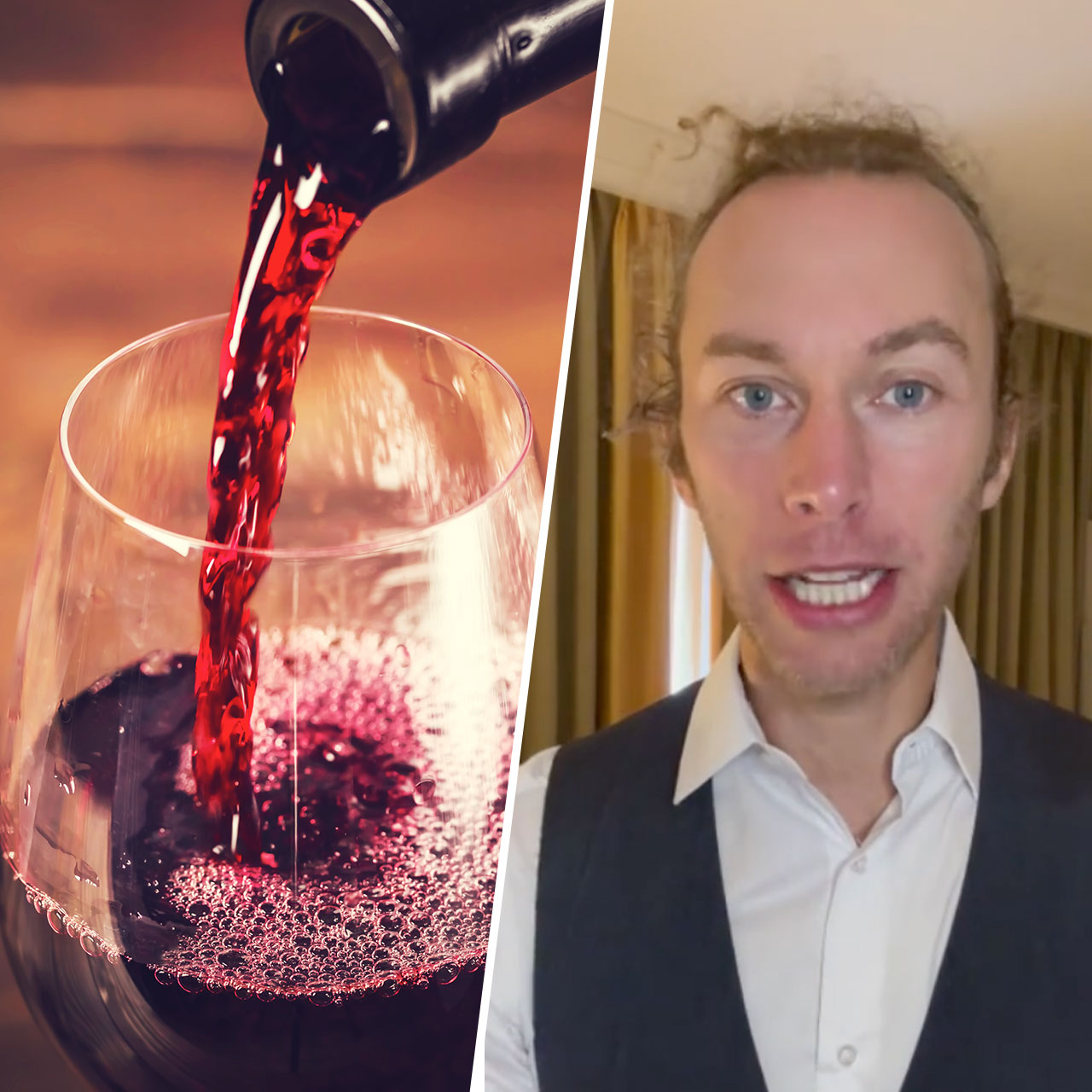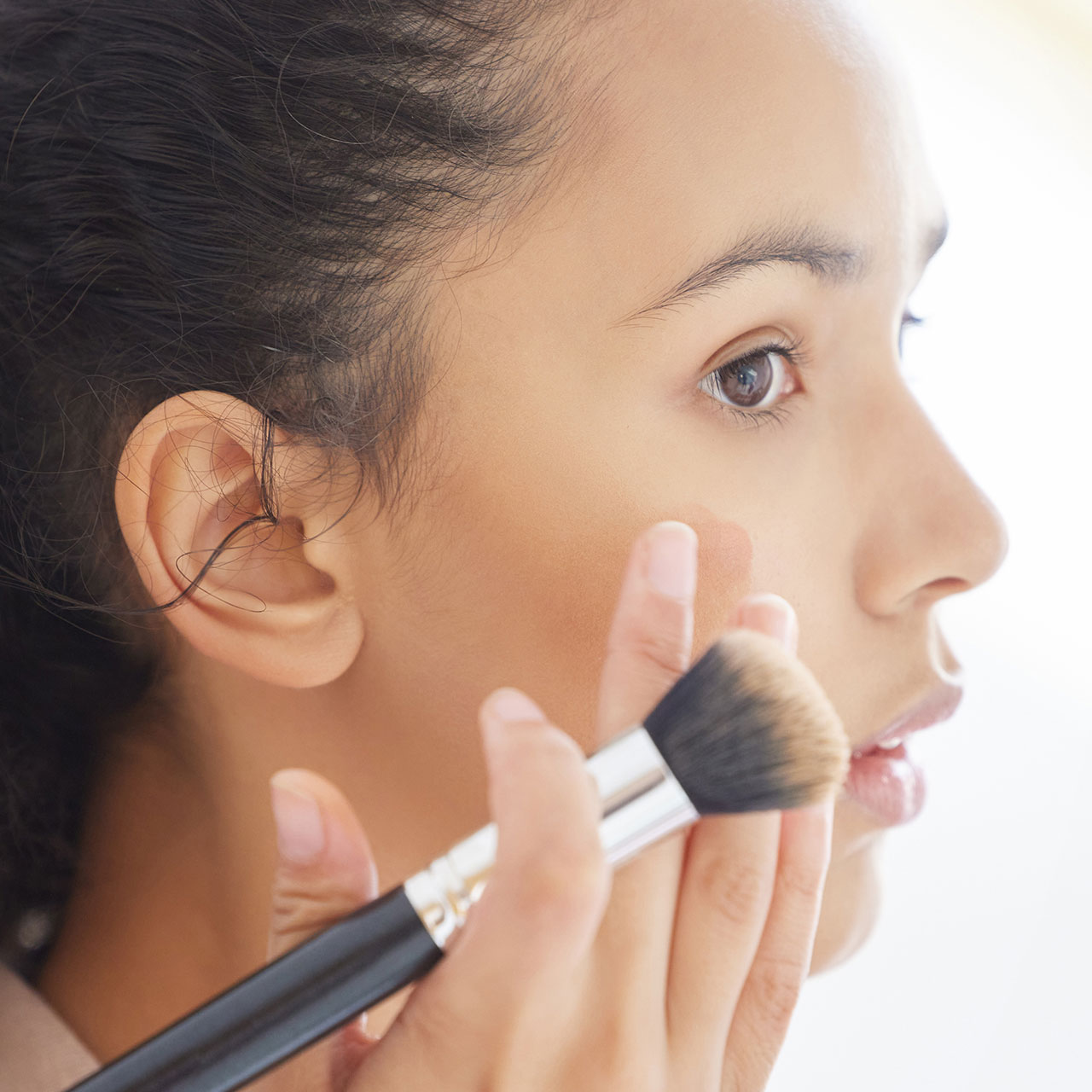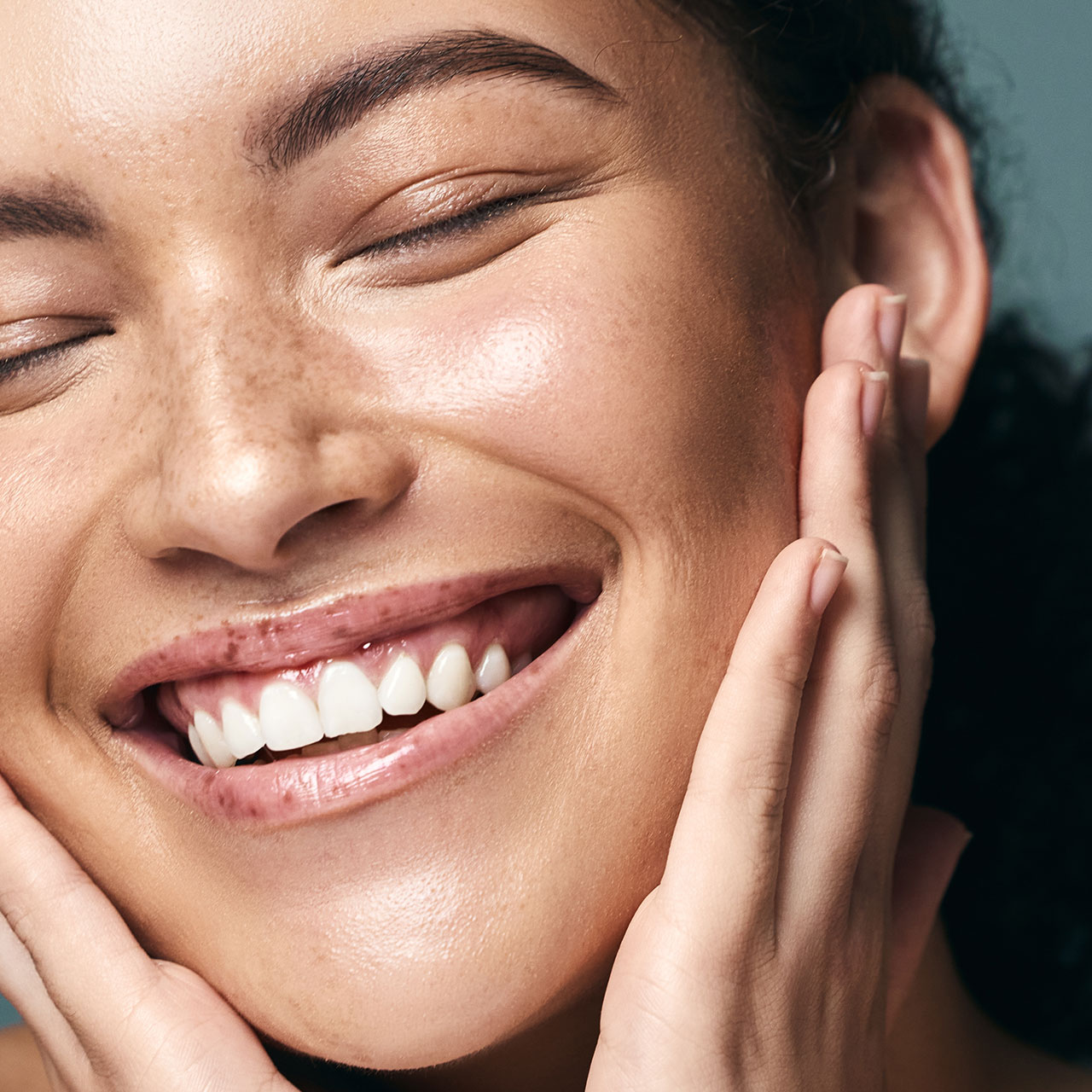If you have thinning hair or struggle with split ends, it’s important, stylists say, to be extra careful when using heat styling tools. Excessively styling your locks with heat, many experts note, can be damaging and also exacerbate hair loss and split ends.
To ensure your hair is as healthy as possible, it’s essential to know the right way to use heat styling tools and which mistakes to avoid. We asked stylists and other hair experts to weigh in on the one heat styling mistake that you should never make if you have thinner and brittle hair.
Heat protectant spray is essential to protect your hair from further damage and breakage, so read on for tips from Gina Rivera, celebrity hair stylist and founder of Phenix Salon Suites, Ghanima Abdullah, hair expert and cosmetologist at The Right Hairstyles and Dr. Elaine F. Kung, M.D., FAAD, board-certified dermatologist and founder of Future Bright Dermatology, and to find out why it’s such an important product for your haircare routine.
READ MORE: 3 Blow-Drying Mistakes That Are Making Your Hair Loss So Much Worse

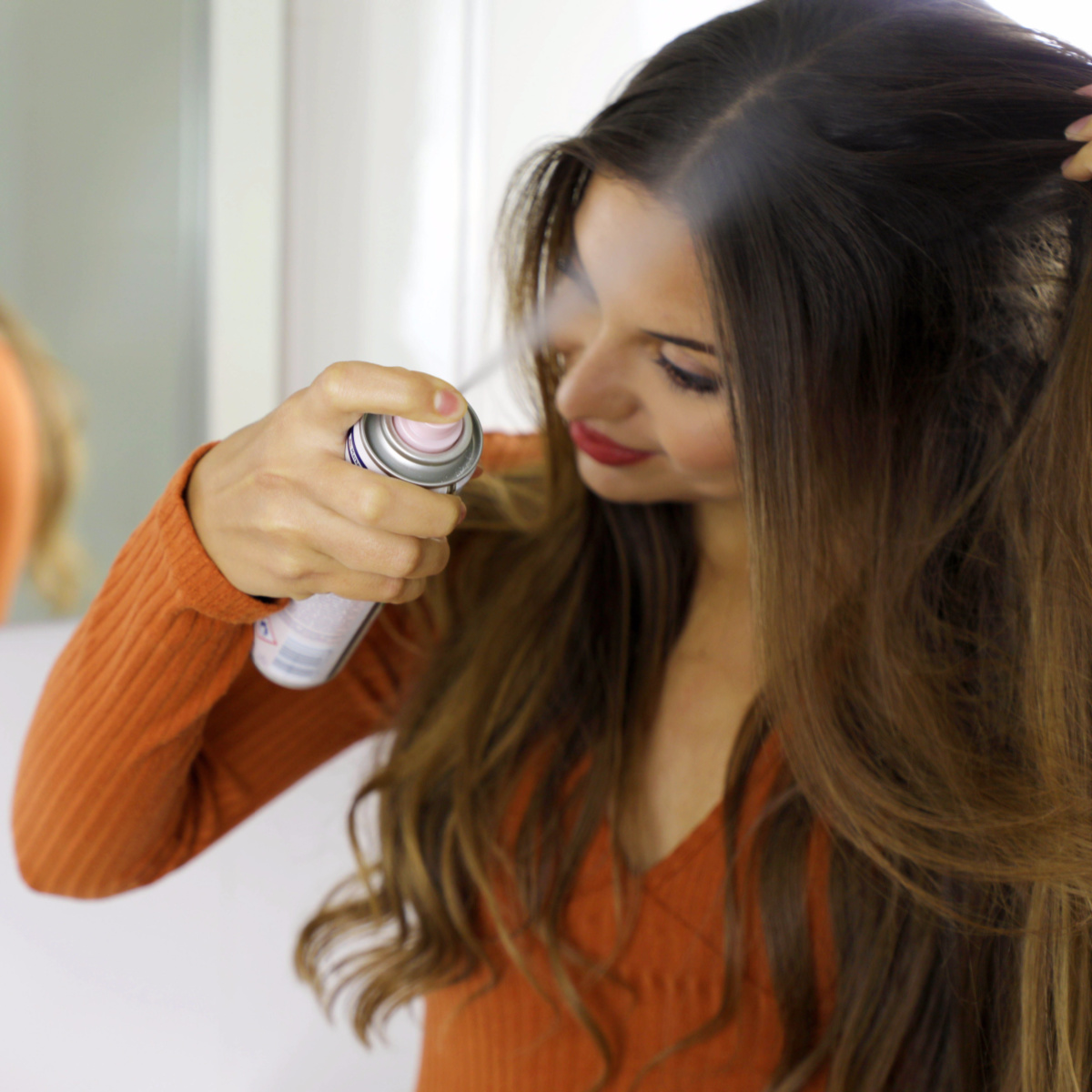
How Skipping Heat Protectant Spray Can Exacerbate Thinning Hair
When it comes to straighteners, dryers, curling irons, crimpers, etc., not using a heat protectant will lead to damage and this can instantly make someone look older, Rivera says, as it can make hair loss so much faster. Heat protectant, she notes, moisturizes your strands and keeps them nourished. Heat tools naturally deprive the hair of moisture, making a protectant essential.
"There are so many styling tools on the market nowadays and it’s important that you have good ones if you want to have great looking hair," she suggests. "A good hot tool will have temperature controls, auto shut offs, and will be durable as well as easy to operate. I recommend tools that utilize infrared technology because the technology works to lock the moisture into the hair strands rather than drying the hair out," she says.
READ MORE: Once And For All, Do You Really Need To Use Heat Protectant On Your Hair?
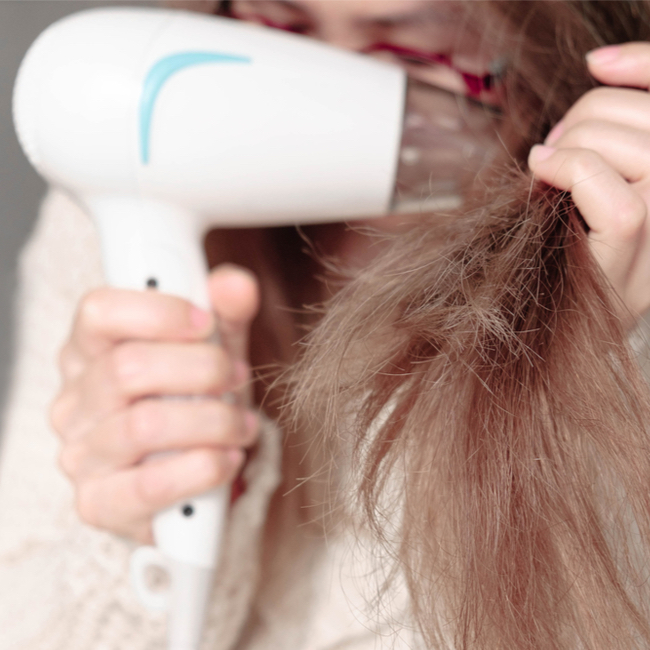
Regarding styling with these types of tools, Udoh says to be careful of over-styling, especially if you have thinning hair. "Women with thinning hair often make the mistake of over-styling their hair to give it more volume and body," she says. "This can actually make the hair look stringy and lifeless, and can accentuate any wrinkles or lines in the face."
This can also be worsened by using the wrong tool for your hair type, Udoh notes. "Using the wrong styling products can also make thinning hair look worse. Heavy gels and mousse can weigh down the hair and make it look greasy while using too much heat can damage the hair and make it look brittle," she says, "It’s important to find lightweight products that will help add volume and body to the hair without weighing it down."
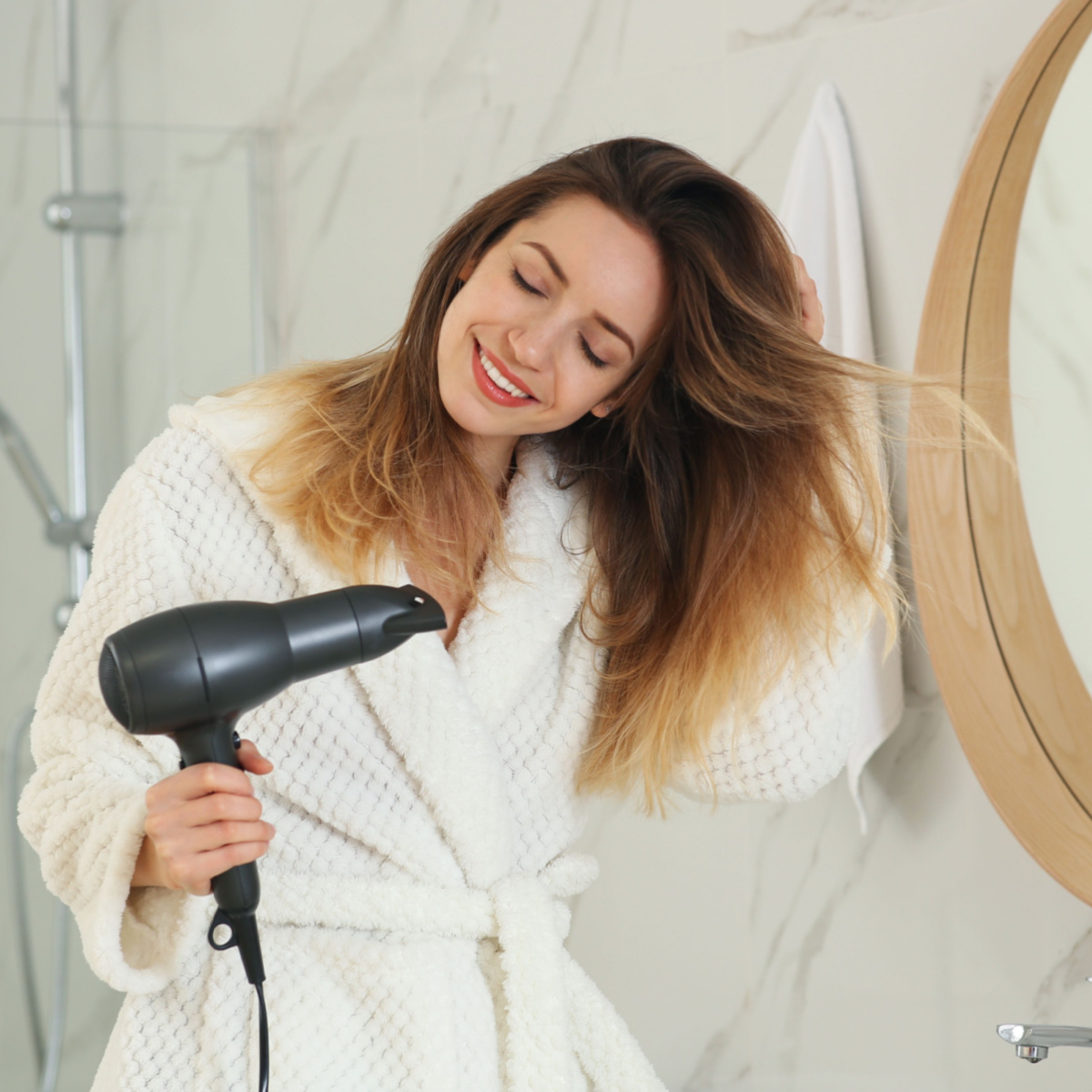
Along with having the right styling tools, Rivera agrees with Udoh in that it’s very important to keep the tool at a lower heat along with a good heat protectant spray to maintain great looking hair, and this is especially true for fine hair which damages easily.
"While typically hot tools may be set a bit higher for coarser hair, it’s equally important to realize that all hair can be susceptible to temperatures which are too hot, and this goes for coarse hair as well," she says. Rivera emphasizes that everyone should "always consult with your stylist to ensure your settings are correct for your hair type."
READ MORE: The Heat Styling Mistakes You Should Never Make If You Struggle With Damaged, Thinning Hair
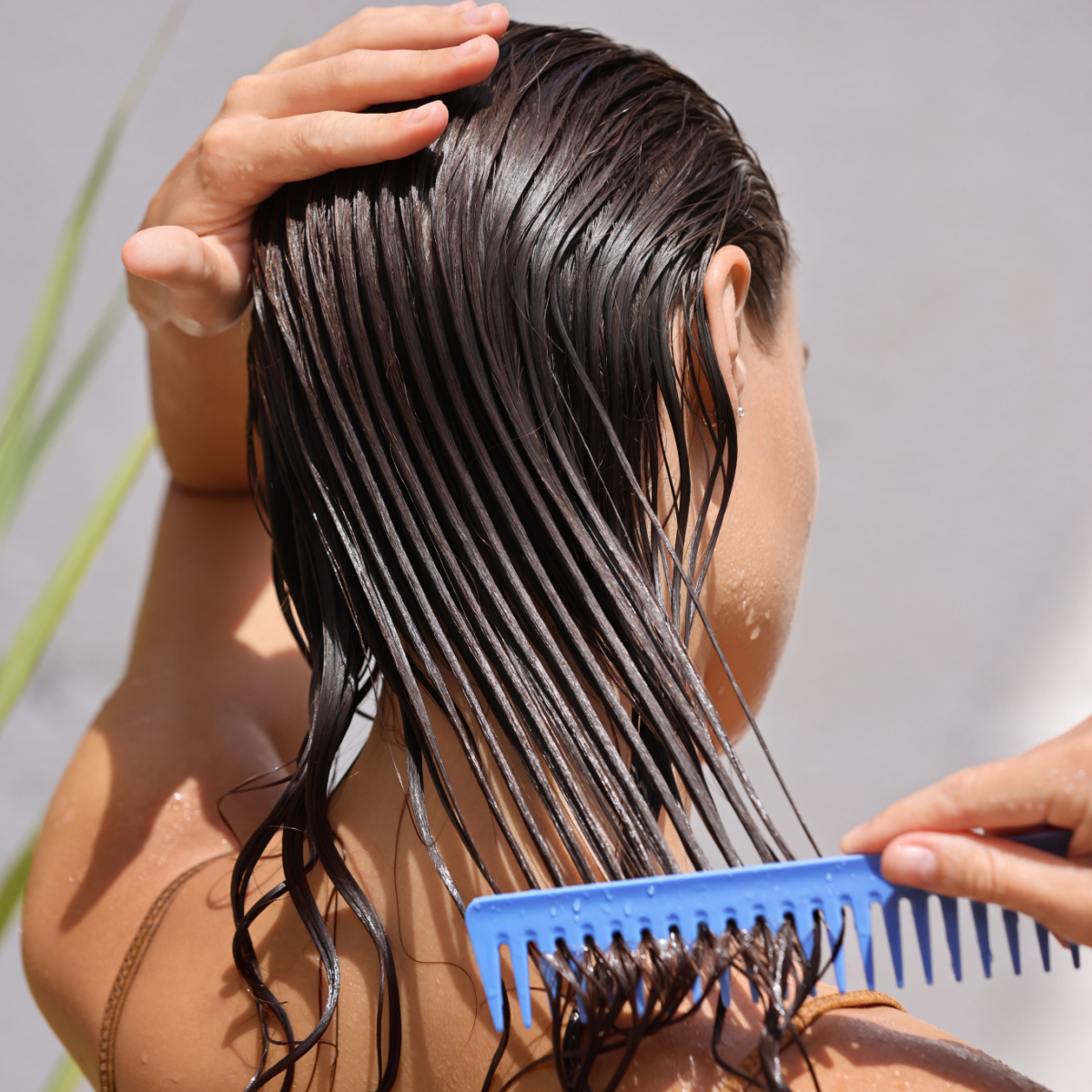
Why Air Drying Might Be The Best Idea For Thinning Hair
Hair and blow dryers are undeniably convenient after stepping out of the shower with dripping locks, but as Kung says, if your hair is already thinning, the many cons of this styling tool outweigh the pros (even if you do use heat protectant spray).
"Hair drying without a hair dryer produces a relatively well-protected hair surface, while hair that is dried using a hair dryer shows more damage to hair surfaces," Kung says of her experience treating patients with hair loss.
READ MORE: The Worst Blow Drying Mistakes For Thinning Hair, According To Experts
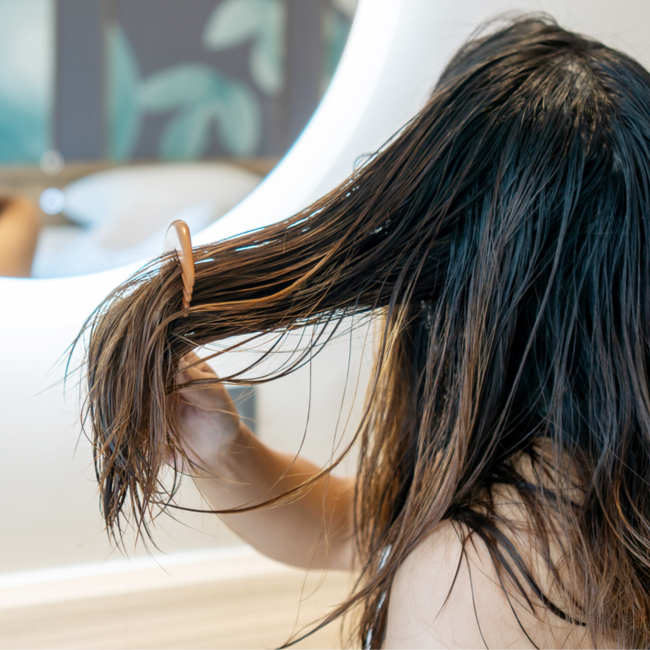
"In addition, the hair surfaces show an overall tendency to become more damaged as the temperature increases, with the most severe surface damage produced after drying with the highest temperature,” she continues. Natural air drying, Kung stresses, or exposure to ambient temperature after gently removing water drops with a towel, is usually considered to be much "safer than using a hair dryer."
The more you know!





